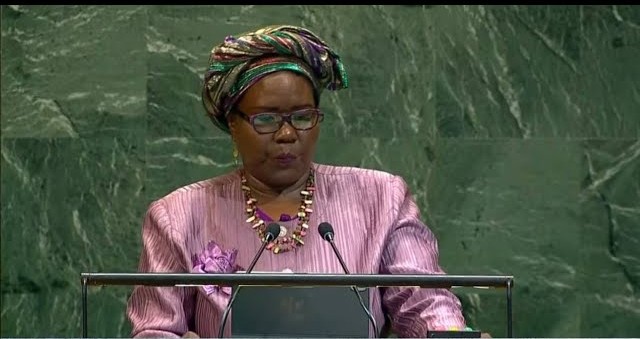
When Vice President Josephine Lagu Yanga addressed the 80th United Nations General Assembly this week, her remarks on South Sudan’s stalled peace process appeared to signal a dramatic shift in government strategy.
Most striking was her announcement that Juba is “considering the resumption of the Tumaini Peace Initiative,” despite the government having previously dismissed it as irrelevant.
Presidential Advisor Gen. Kuol Manyang Juuk had earlier declared the initiative “dead and defunct,” accusing it of straying from its original mandate and attempting to override the 2018 Revitalised Peace Agreement.
For a peace initiative once written off as politically obsolete, its sudden resurrection on one of the world’s biggest diplomatic stages is puzzling.
Is this a genuine course correction by the government or a carefully crafted message designed to appease international partners and buy more time as elections approach?
Lagu’s remarks at the UNGA stand in sharp contrast to the government’s previous stance. Only months ago, officials dismissed Tumaini as an irrelevant sideshow that risked undermining the 2018 Revitalised Agreement.
The shift raises uncomfortable questions about credibility and consistency.
If the government truly believes Tumaini is worth reviving, what has changed since Juuk’s blunt dismissal? And if nothing significant has changed, is this renewed commitment little more than diplomatic theater aimed at portraying Juba as cooperative and reform-minded, especially to donors, the UN, and regional mediators?
South Sudan’s broader peace process remains deeply troubled. More than seven years after the signing of the revitalised peace agreement, the government admits that implementation is only around 60 percent complete.
Security sector reforms are still unfinished, transitional justice mechanisms remain largely on paper, and preparations for the 2026 elections are far behind schedule.
These failures have eroded public trust and emboldened armed groups that refused to sign the 2018 deal.
Bringing those groups into the fold was the original purpose of the Tumaini Initiative.
But with little tangible progress in implementing the agreement that already exists, many analysts question whether a parallel dialogue track would fare any better or whether it’s simply a political distraction.
There are several plausible reasons for Lagu’s change in tone. Mounting international pressure over delays in the peace process, fears of renewed violence after the detention of First Vice President Riek Machar, and the growing instability in neighboring Sudan have all increased the stakes.
Reopening Tumaini could be a calculated diplomatic move designed to project flexibility and willingness to compromise, even if little changes in practice.
It could also be an attempt to regain control of the narrative ahead of the 2026 elections. A more inclusive peace process might strengthen the government’s legitimacy, reduce the risk of election-related violence, and secure international backing for the transition.
Yet skepticism persists. The same government that once condemned Tumaini for overreaching now seeks to revive it without offering a clear explanation of what will be different this time.
Critics argue that without political will, institutional reforms, and genuine inclusion, Tumaini 2.0 risks becoming yet another rhetorical exercise, a peace process in name only.
VP Lagu’s speech was heavy on optimism and ambition, but light on specifics.
Her call to restart the Tumaini Initiative may reflect an evolving strategy or it may simply be a calculated message to maintain international goodwill while the government struggles to meet its existing commitments.
The truth will emerge not in speeches but in actions. Will Juba genuinely re-engage holdout groups, address the root causes of their grievances, and accelerate implementation of the 2018 peace deal? Or will Tumaini remain what Gen. Juuk once called it, a defunct experiment repackaged for diplomatic consumption?
For now, the jury is still out. And until deeds match words, many South Sudanese and international observers will continue to view Lagu’s UNGA promise with deep suspicion.

